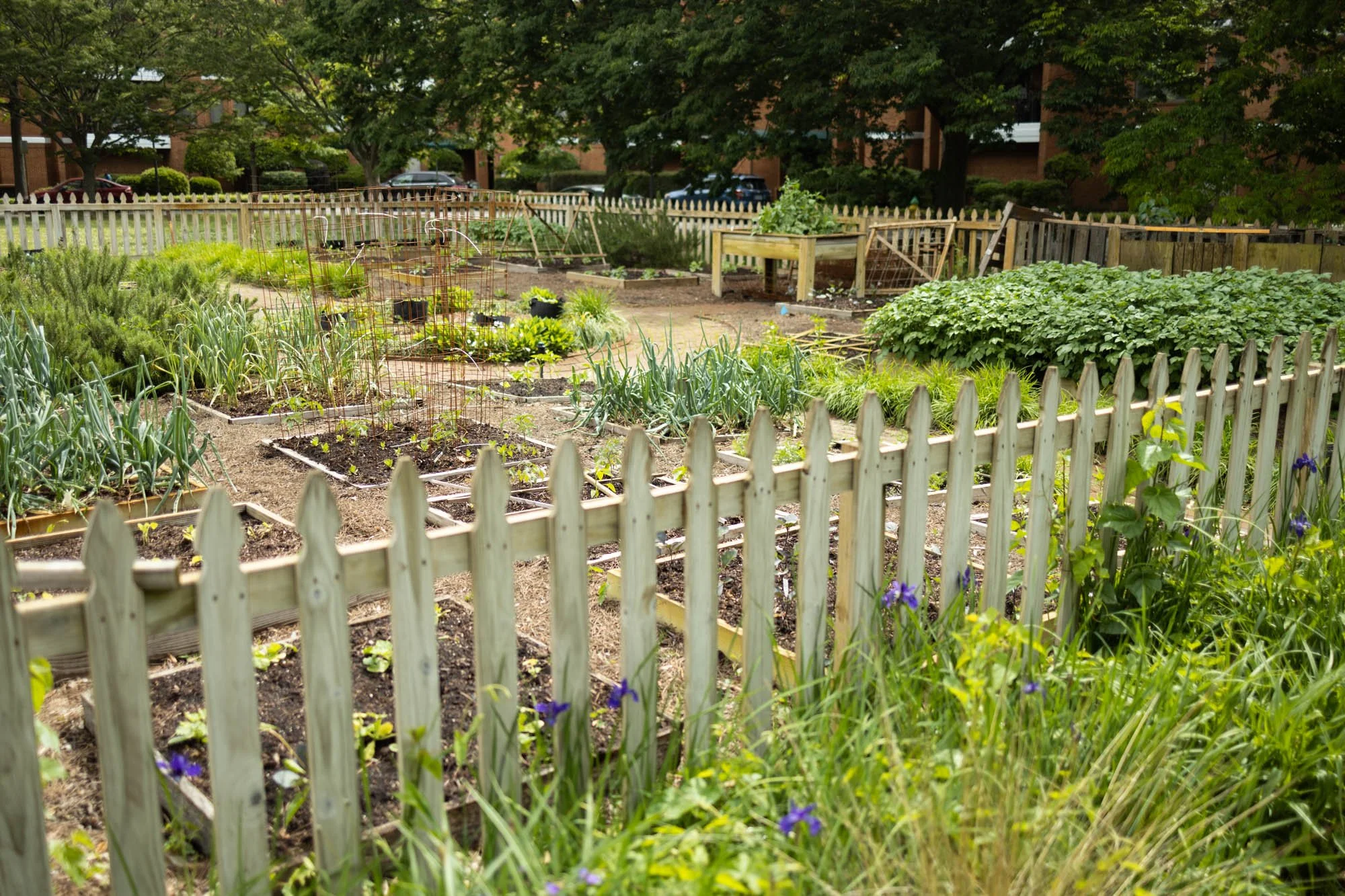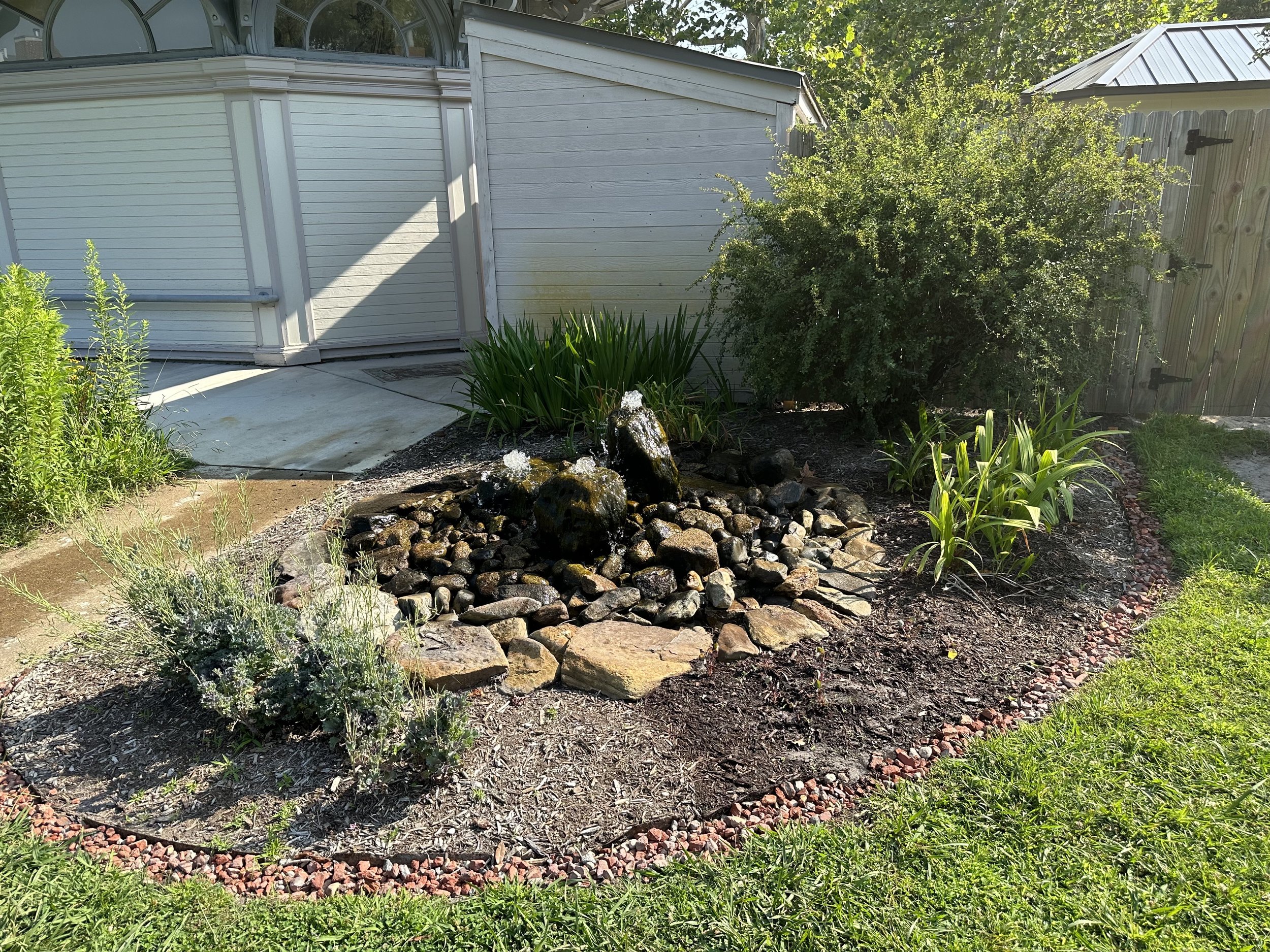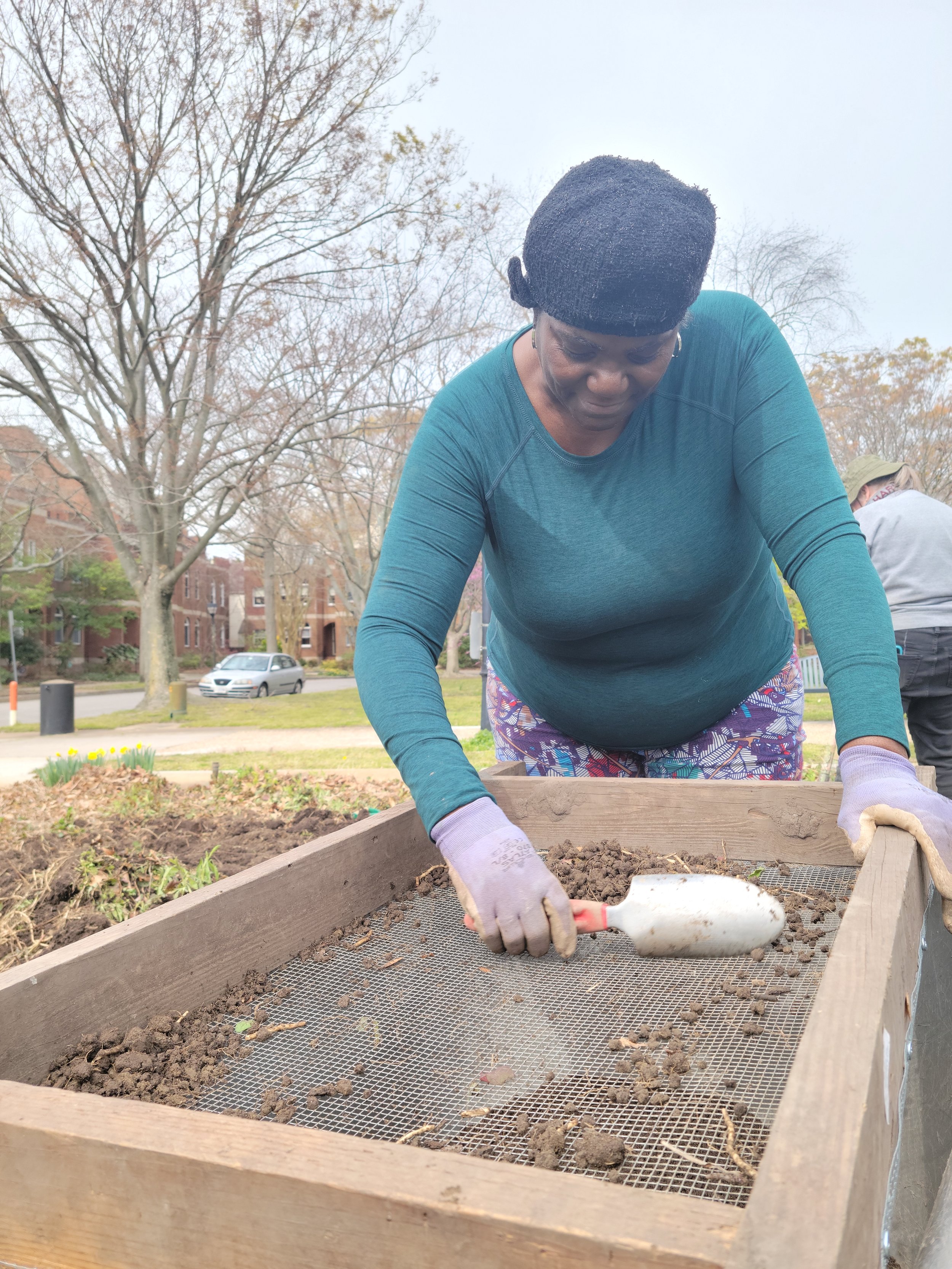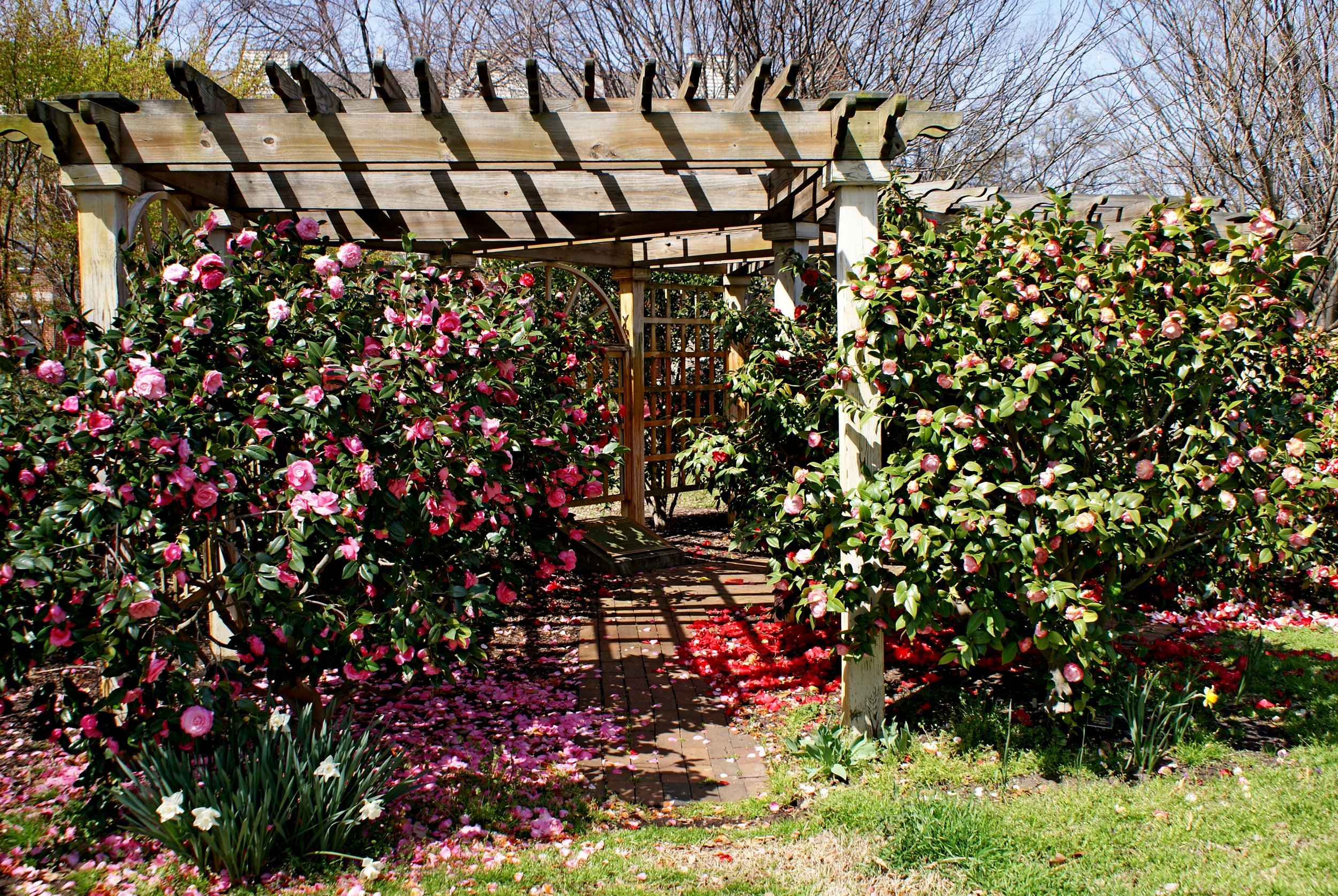Volunteering
Master gardeners and experienced volunteers work in the gardens most days. You are always welcome to join us. If you would like to volunteer in the gardens and are available on other days or times, please contact us.
Garden Schedule
-

Formal Knot Garden
TUESDAYS 9AM - 11AM
Volunteers meet on Tuesdays from 9AM - 11AM. Scott Shephard and Monica Shephard lead the volunteers. The garden is a traditional English knot garden and requires regular maintenance. You will learn and practice your pruning, planting and weeding skills.
-
Habel Camellia Lath House
SPRING
Volunteers meet after the camellias have bloomed in the spring to carefully prune the spent blooms and shape the camellias. The lath house which provides filtered shade for the camellias is cleaned in the late spring and early summer. Every few years, we restain the lath house supports. Check our web site for notices announcing camellia lath house volunteer opportunities.
-

Edward E. Gross Heirloom Gardens
THURSDAYS 9AM - 11AM
Volunteers meet on Thursdays 8:30AM - 10:30AM during summer and 9AM - 11AM during the cooler months. Mr. Paul Ziegler and Ms. Kathryn Whitlock lead the volunteers. The garden provides a steady flow of fresh produce to the Food Bank. The white and yellow ribbons on the fence honor Mr. Tom West who created the Square Foot Garden and passed away recently.
-

Arboretum
SPRING/FALL & AFTER STORMS
Volunteers meet in the spring, fall and after storm events to pick up debris and trim trees. The goal of our work is to maintain the health of the trees and teach techniques that can be applied to your home gardens. Check our website for notices announcing arboretum volunteer opportunities.
-

Pollinator Garden
TUESDAYS & THURSDAYS 8:30AM - 10:30AM
SATURDAYS 9AM - 11AMVolunteers meet on Tuesdays and Thursdays 8:30AM to 10:30 AM and Saturdays 9AM to 11 AM. This garden is undergoing extensive renovation. When completed, this garden will host plants which support our native pollinator lifecycles. We are removing an invasive species, houttuynia cordata (chameleon plant), which has overgrown and killed a number of desirable plants. During the renovation, cleaned areas are seeded with native wildflowers to provide pollen and nectar for bees, butterflies, other insect pollinators, birds and bats. Desirable plants are potted for reuse within the gardens. Volunteers will learn and practice skills needed to completely rehabilitate a garden, eliminate aggressive invasive species, plant and nurture native species, and support pollinators.
-

Water Garden
THURSDAYS 9AM - 12PM
SATURDAYS 9AM - 11AMThis garden is maintained with the pollinator and natives garden. It provides a source of water for insects and birds.
















